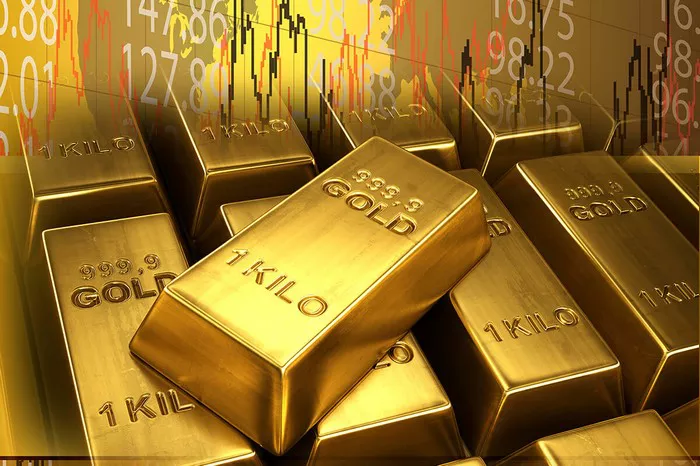Gold has held a unique place in human history for millennia, valued for its rarity, beauty, and inherent qualities as a store of wealth. In modern financial markets, gold serves multiple roles, including as a commodity, a currency, and a financial asset. One of the ways gold is traded in financial markets is through futures contracts, which allow investors to speculate on the future price of gold or hedge against price fluctuations. In this article, we will explore the dual nature of gold as both a commodity and a futures instrument, examining its characteristics, market dynamics, and role in investment portfolios.
Gold as a Commodity
Gold is widely recognized as a commodity, meaning it is a raw material or primary agricultural product that is bought and sold in bulk for use in manufacturing, production, or consumption. As a commodity, gold is mined from the earth’s crust and refined into various forms, including bars, coins, and jewelry. Gold is used in a variety of industrial applications, including electronics, aerospace, and medical devices, as well as in the production of luxury goods and ornaments.
In addition to its industrial uses, gold also serves as a store of value and a safe-haven asset during times of economic uncertainty and market volatility. Investors buy gold as a hedge against inflation, currency depreciation, geopolitical risks, and financial market turmoil. The demand for gold as a commodity is influenced by factors such as economic growth, inflation expectations, central bank policies, and investor sentiment.
Gold Futures Contracts
Gold futures contracts are financial instruments that allow investors to buy or sell gold at a predetermined price on a specified date in the future. Futures contracts are standardized agreements traded on regulated exchanges such as the COMEX division of the New York Mercantile Exchange (NYMEX) and the Tokyo Commodity Exchange (TOCOM). Gold futures contracts enable investors to gain exposure to gold prices without owning physical gold, providing liquidity, transparency, and risk management capabilities.
Gold futures contracts are used by a wide range of market participants, including speculators, hedgers, and arbitrageurs. Speculators buy and sell gold futures contracts to profit from anticipated price movements, leveraging their market insights and trading strategies to capitalize on short-term price fluctuations. Hedgers, such as gold producers and consumers, use gold futures contracts to hedge against adverse price movements and manage their exposure to gold price risk. Arbitrageurs exploit price differentials between futures and spot markets to profit from mispriced assets and maintain market efficiency.
Characteristics of Gold Futures Contracts
Gold futures contracts have several key characteristics that distinguish them from other financial instruments:
Standardization: Gold futures contracts are standardized agreements with fixed contract specifications, including contract size, delivery date, delivery location, and quality specifications. Standardization ensures uniformity and facilitates trading and clearing on regulated exchanges.
Margin Requirements: Margin requirements are the amount of capital that investors must deposit with their brokerage firms to initiate and maintain positions in gold futures contracts. Margin requirements serve as collateral and help mitigate counterparty risk, ensuring the financial integrity of the futures market.
Leverage: Gold futures contracts offer leverage, allowing investors to control a larger position with a relatively small amount of capital. Leverage magnifies both potential profits and losses, increasing the risk and volatility of futures trading.
Settlement Methods: Gold futures contracts can be settled through physical delivery or cash settlement, depending on the preferences of the parties involved. Physical delivery involves the transfer of gold bullion from the seller to the buyer at a predetermined delivery location, while cash settlement involves the payment of cash based on the final settlement price of the contract.
Role of Gold Futures in Investment Portfolios
Gold futures play a crucial role in investment portfolios by providing diversification, risk management, and potential returns. Investors use gold futures contracts to hedge against inflation, currency fluctuations, and systemic risks in traditional asset classes such as stocks and bonds. Gold futures contracts have low correlation with other financial assets, making them an effective portfolio diversifier and hedge against tail risks.
In addition to risk management, gold futures contracts offer speculative opportunities for investors seeking to profit from short-term price movements in the gold market. Speculators use technical analysis, fundamental analysis, and quantitative trading strategies to identify trading opportunities and capitalize on price trends. Gold futures trading can be highly profitable but also involves significant risks, including leverage, volatility, and liquidity constraints.
Regulation of Gold Futures Markets
Gold futures markets are subject to regulation by government agencies and self-regulatory organizations to ensure fair and orderly trading and protect the interests of market participants. Regulatory oversight helps maintain market integrity, prevent market manipulation, and safeguard the stability of the financial system. Regulators such as the Commodity Futures Trading Commission (CFTC) in the United States and the Financial Conduct Authority (FCA) in the United Kingdom oversee the operation of futures exchanges, monitor trading activity, and enforce rules and regulations to promote transparency and investor protection.
Conclusion
In conclusion, gold occupies a dual role as both a commodity and a futures instrument in financial markets. As a commodity, gold is valued for its industrial uses, aesthetic appeal, and intrinsic qualities as a store of value. Gold futures contracts provide investors with exposure to gold prices and opportunities for speculation, hedging, and portfolio diversification. By understanding the characteristics and dynamics of gold futures markets, investors can make informed decisions and effectively manage risk in their investment portfolios.

